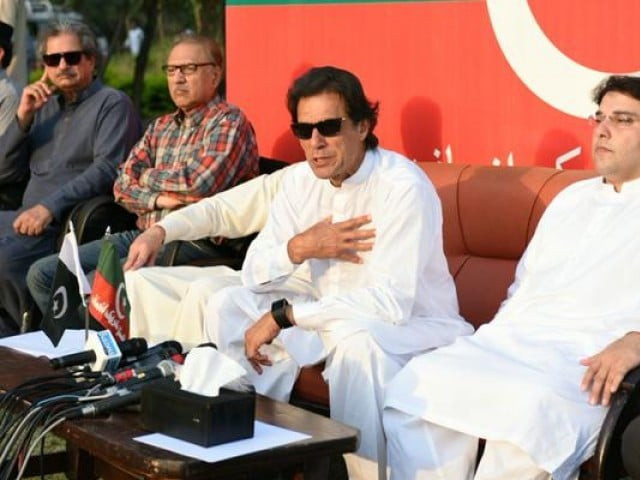The politics of democracy
Ideally, corruption needs to be dealt with by the civilian set-up through working accountability bodies

PTI chairman Imran Khan addresses a press conference at Bani Gala in Islamabad on September 14, 2015. PHOTO: PTI

We all know that corruption is a major problem in our country. Ideally, it needs to be dealt with by the civilian set-up through working accountability bodies. All political parties should be pressing for this rather than for military intervention. This is especially true given the particular history of our country and the long period of rule by military dictators.
It is true that the Rangers, working under military command, have helped improve the law and order situation in Karachi, but the city has its own specific dynamics. Here corruption, criminality and terrorism have formed a nexus of sorts, with elements within political parties embroiled in this nexus. Even here, ideally the provincial government should have spearheaded the drive against wrongdoing. It is unfortunate that it lacks the capacity, and more importantly, the will to do so. But even given this, there can be no excuse for calling in the military to intervene in other places. The task of elected governments, including Imran Khan’s PTI in Khyber-Pakhtunkhwa, is to find ways to deal with such problems on their own and prove to the people that they have been elected for a reason. Asking the military to take over key civilian tasks only adds to institutional confusion. The ire of the interior minister is then quite justified.
Published in The Express Tribune, September 17th, 2015.
Like Opinion & Editorial on Facebook, follow @ETOpEd on Twitter to receive all updates on all our daily pieces.















COMMENTS
Comments are moderated and generally will be posted if they are on-topic and not abusive.
For more information, please see our Comments FAQ